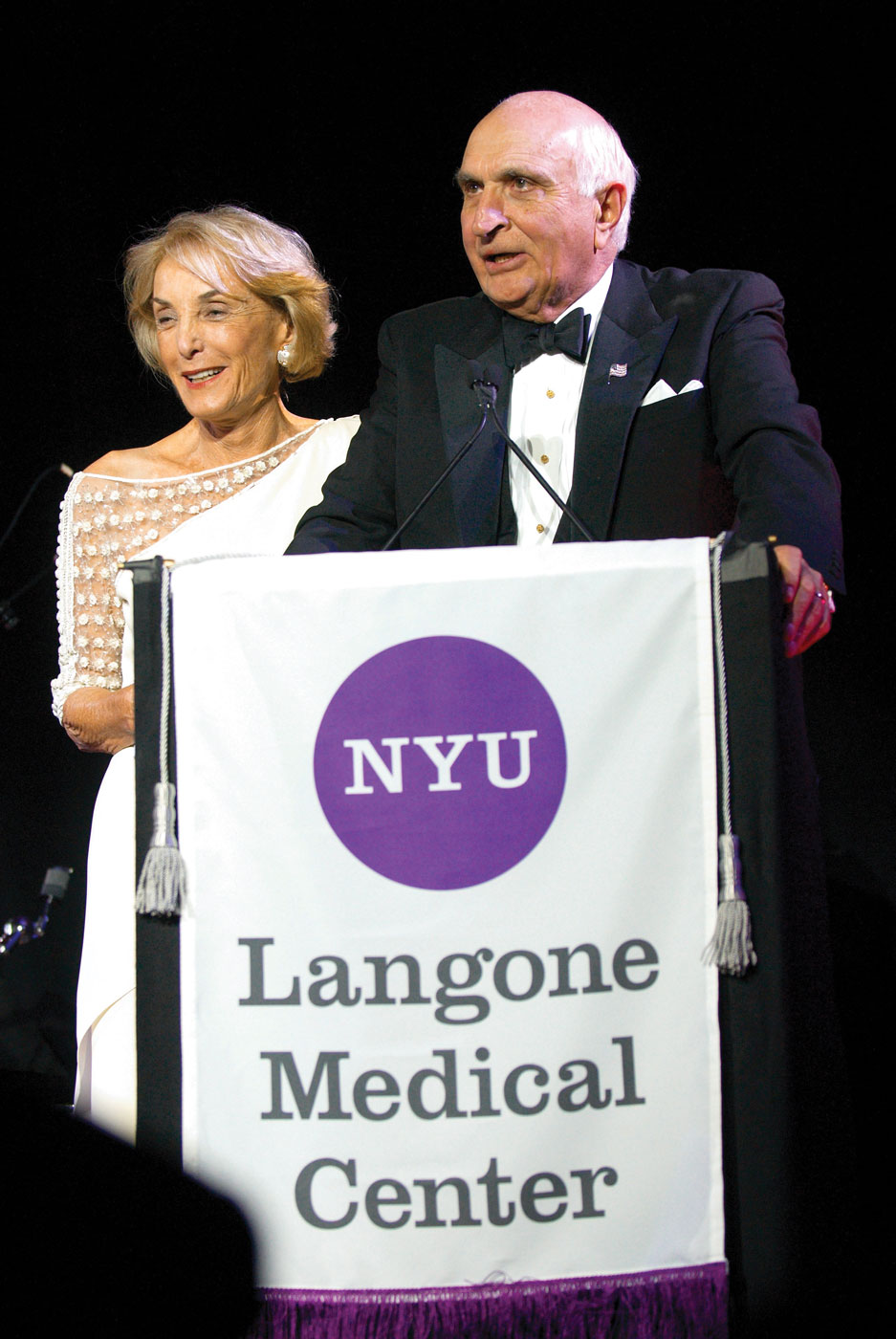Ken Langone is arguably one of the most successful businessmen America has ever seen. Born in Roslyn Heights, NY, to first-generation Italian-American parents, he worked as a caddie, sold Christmas wreaths, and even dug ditches for the Long Island Expressway before heading to Wall Street and eventually co-founding home improvement chain Home Depot in 1978. Langone is also the founder, chairman and CEO of Invemed Associates LLC, a New York brokerage and investment banking firm, and his recent memoir, I Love Capitalism! is a bestseller. But the titan of business—Forbes values his net worth at $3.6 billion—while wildly successful, has also pledged to give half of his money away. Langone is a benefactor of his beloved alma maters, Bucknell University and New York University, where the medical center is named after him. He’s also actively involved with a large number of charities, from Ronald McDonald House to Harlem Children’s Zone to the Boys’ Club of New York. He’ll be the keynote speaker for Family Center’s Titan Series breakfast on October 3. Here, the no-holds-barred businessman talks about the importance of working hard, doing good and never losing sight of the things in life that matter.
Langone: Howdy!
How are you today?
If I was any better I couldn’t take it!
Am I catching you on vacation?
No, I’m working. I was away last week. I have a home in the mountains of western North Carolina. It was beautiful. I make sure to give myself some time off.
You recently donated $100 million to NYU’s medical school so students won’t have to pay tuition moving forward. Why is philanthropy so important to you?
It starts, frankly, in my childhood with my parents, who had very, very little, but they always made it a point to make sure they had something to give away to somebody who was less fortunate than they were. I don’t tell anybody else what they should be doing with their money. A poor kid I grew up with—his family was probably on public assistance—I used to bring him home every once in awhile for lunch. My favorite sandwich was American cheese on white bread with mustard, and when I told my mother I was bringing him home, she’d make another sandwich for him. Charity isn’t just giving money away, it’s giving of yourself. It’s having empathy for people that are less fortunate. And I saw that in my parents.
You focus specifically on healthcare and education. Why are those a priority?
Well, because you want to stay as healthy as you can. Education, it’s the way forward for everybody. If you want to take a kid out of the ghetto or a kid that comes from modest origins and give him a chance at a better future, give him an education. Public education in America is a disaster. We’re the most developed country on earth. Of the 30 most developed countries on earth, we spend more money per student than any other, and we rank 28th out of 30 in results.
How do you decide what charities you want to invest in?
Education gets my attention. Healthcare gets my attention. Youth at risk. My wife and I love animals so we have a very strong commitment to programs for animals. My wife is on the board of Animal Medical Center [in NYC] and we donated a cancer center there. We have four dogs and we have chickens.
One of the things I’m very interested in is cost and benefit. I’m a businessman. The same standards I apply to looking at a business opportunity, I apply to a charity. There’s no such thing as a bad charity; there’s a lot of charities that no matter what you give them, it doesn’t move the needle. I say to myself, I can’t get involved in that. A charity has got to have accountability. If you go out and you’re taking money from people, there’s got to be some measure by which you’re willing to be measured to see whether or not the benefit of what you’ve taken from those people reflects what they’ve given and what they’ve sacrificed.
Does your wife, Elaine, come to you with ideas?
All the time. My wife is very active and visible and involved at the Boys’ Club of New York. Look, it’s simple: We have been blessed with all that this great country has to offer, and we believe if we don’t reflect our gratitude in actions, then the gratitude doesn’t matter. To say thank you that I’m born in America and that’s the end of it, to me, that doesn’t get the job done. I’ve been blessed with success beyond my wildest dreams, and I think my upbringing dictates that the good fortune I’ve had, I share with others.
What advice do you give kids who ask you?
I tell them, if you’re going to work for money, you’re going to fail. The decision of your career should be based on what you like doing, and can you be excited about doing it every day? If you can’t, don’t take the job.
Do people ask you for advice a lot?
Eh. Young people show up. They come around a lot. They all think there’s some magic potion. There really isn’t. It’s hard work, passion for what you’re doing—all the things I mention in my book.
You told The Washington Post that you’re insecure.
I’m very insecure! Of course I am!
About what?
About everything! [laughs] I want to be loved! I want to be respected. I want to win. Hell, if you’ve got about a month I can tell you all the foundations of my insecurity. I’m serious! Know thyself.
You also recently said you’re successful because you’re sensitive. What did you mean by that?
If I’m sitting with you and I’m trying to sell you something, if I have good antennae, I’ll know when I got a shot at getting you to do it, and I’ll know, no matter what, when you’re not going to do it. That’s where in the first case, you keep going to get ‘em over the goal line; and in the second case, you back away and realize I’ll save ‘em for another event or opportunity that they may be interested in. I’m hardly the smartest guy around, far from it. But I think I have a fairly good idea of knowing…like they say, ‘you gotta know when to hold ‘em and know when to fold ‘em.’ That’s what it’s all about. Also, being mindful of the sensitivities of other people. The thing I do know is, don’t give it unless you can take it.
What do you want to do next?
I want to make sure I live a little longer! What I’m saying is, you plan to a point and then you let God take over. I understand that my spirituality might make a lot of people nervous, and that’s ok. I don’t wear it on my sleeve or judge anybody else, in fact I’ve said, some of the most spiritual people I know are devout atheists. The fact that you believe in God doesn’t mean that you’re a good person.
Do you go to mass every day?
When I can. I went this morning because I forgot to go last night on Sunday.
Were you feeling guilty?
Yes, of course! It all goes back to my insecurity! [laughs] Suppose if I died before I went to mass, I might’ve gone to purgatory!
What lessons have you tried to impart to your three kids?
Remember that reputation takes a lifetime to build and you can lose it in five minutes. Be mindful of the things in life that matter, and do your damn best to make sure you do them as best you can. That, and keep your word. Promise less, and deliver more. What else is there of any value other than your word? There’s nothing.



